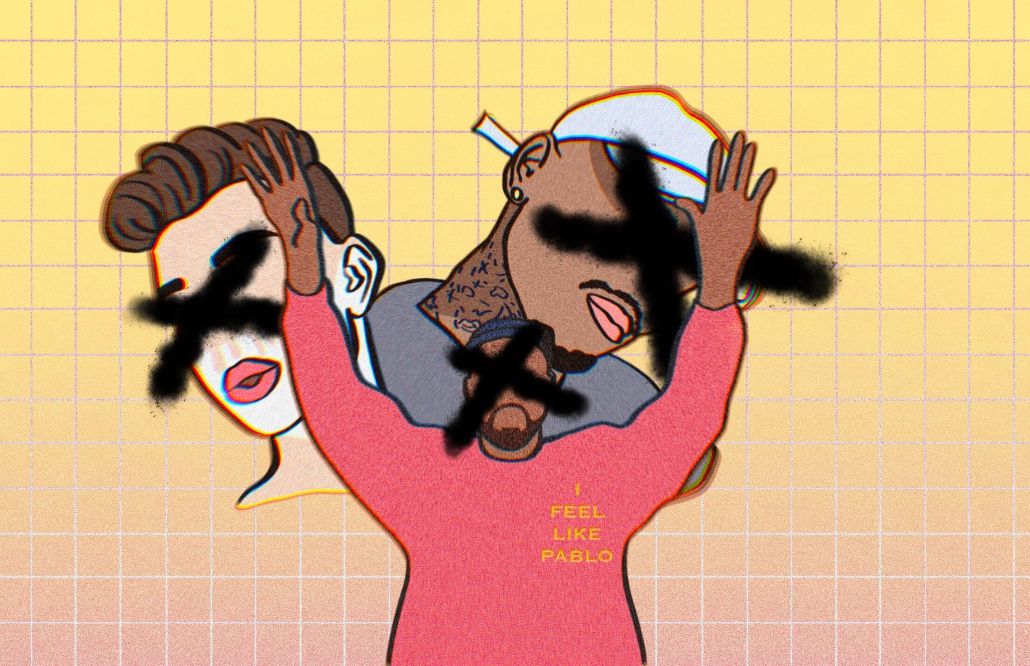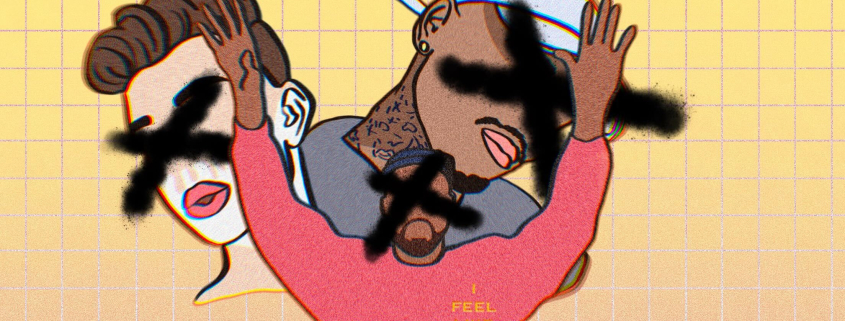‘Canceling’ is more a pause than a full stop

Two weeks ago, the world (or those who had an inconspicuous name crossed out on their 2022 Spotify Wrapped) rejoiced to discover that disgraced musical legend Ye, formerly known as Kanye West, had recovered from his bout of antisemitism. As stated on his Instagram, after a viewing of “21 Jump Street” (2012) due in large part to Jonah Hill’s character, he “likes Jewish people again.”
Late last year, beginning with his display of “White Lives Matter” shirts during his Yeezy Paris Fashion Week, Kanye released a slew of anti-semitic social media posts, with one stating that he would go “Death con [sic] 3 on Jewish people.” His Twitter and Instagram accounts were temporarily suspended and he was quickly dropped by Adidas, CAA, Balenciaga and other collaborators. He was, seemingly, publicly condemned.
However, just following his latest announcement, there seems to be an acceptance of Kanye back into the public eye. On March 31, artist Tyler, the Creator released an extended version of his previous studio album, “CALL ME IF YOU GET LOST: The Estate Sale.” He publicly thanked each contributor and feature on the eight new songs, one of which being Kanye on the song “HEAVEN TO ME.”
So the question begs, was he ever actually canceled to begin with? Kanye’s monthly Spotify listeners sit at over 50 million, making him the 12th most listened to artist on the platform. People never stopped listening to Kanye. They either waited for the heat to die down or just never really cared at all.
Kanye is far from being the only public figure to seemingly recover from being “canceled.” Chris Brown seems to have a flourishing music career after being publicly prosecuted for domestic violence against Rihanna and multiple other women who have come forward with physical or sexual violence claims against him. He continues to chart and collaborate with artists like Drake, Metro Boomin and Chloë Bailey from the duo Chloe x Halle. He is the 33rd most listened to artist in the world on Spotify.
Comedian Dave Chappelle, after his October 2021 Netflix special “The Closer” for which he was criticized for transphobic jokes in his set, proceeded to double down on his statements and went on to sell out four shows at the Hollywood Bowl the following May as a part of Netflix’s comedy festival. Speaking of comedians, Louis C.K., in 2017, admitted to multiple sexual misconduct accusations over the course of many years, but then went on to win a Grammy for his comedy album in which he joked about being “canceled.”
When canceling does and has worked, historically, has typically been against women. Women whose careers have been ruined, or seriously hurt, include the Dixie Chicks, Janet Jackson, Kathy Griffin and Lindsay Lohan. The Dixie Chicks spoke out against George Bush’s decision to invade Iraq, Janet Jackson’s nipple was exposed on live television by Justin Timberlake, Kathy Griffin posed with a decapitated Donald Trump head and Lindsay Lohan was suffering from addiction. None of these women did anything particularly harmful, if at all to anyone. Yet they were ruthlessly scrutinized by the media.
Canceling, it seems, is just another failed attempt at repairing the patriarchal structures of power. If people are a fan of someone, whether that be for their music, comedy or anything else, they seem to be able to overlook their problematic behaviors and statements — no matter how recent they may be, no matter how much damaging the statements are for the minorities affected. People seemingly only care about issues not particularly pertinent to them for so long. Sympathy versus empathy makes a significant difference, one that affects the way the general public treats problematic public figures.
The only celebrities canceling succeeds for are those who did nothing truly wrong in the first place. In a world so unfortunately dominated by the patriarchy and hateful rhetoric, canceling seems to only pause a career, before it is resumed and, at times, bolstered unlike ever before.

